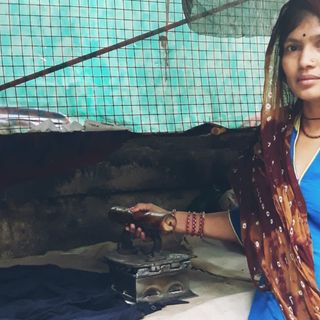A watershed moment in Thappad arrives during a party hosted by Amu (Taapsee Pannu) and husband Vikram (Pavail Gulati) when Amu’s reality is shattered. Her otherwise loving husband, in a fit of rage and disappointment at not getting a promotion, slaps her. Unable to grasp this seismic shift in her marriage, Amu is seen going about her housework and carework routine — making tea for Vikram, serving as his personal alarm clock, checking her mother-in-law’s blood sugar levels, and seeing Vikram to his car with wallet and thermos in tow. But the spark, lent by love, with which she went about her duties as a housewife before, is gone, and Amu is left searching for the value and respect she was promised in her marriage — only to slowly realize it was never there in the first place.
Thappad puts the respect accorded to women — both by themselves and by others — at the forefront of its several stories. Throughout the movie, Amu insists being a housewife was her choice, that she had found happiness in prioritizing Vikram’s dreams ahead of her own. Post-slap, however, Amu questions herself: had she, in her devotion to his dreams, somehow turned herself into somebody who could be slapped?
Director Anubhav Sinha constantly asks this of his characters — what kind of woman gets disrespected like Amu does? More importantly, what kind of woman decides not to tolerate it? The answer to the first question, he shows, is, unfortunately, all women. The answer to the second, fortunately? With some support, could be any woman.
In one way or another, Thappad shows its women characters fighting for their right to be respected, and for their choices to be accepted. Amu’s lawyer, Netra (Maya Sarao) is gathering aplomb for her ability to lay siege on sexual harassers, while being constantly disparaged by her husband at home. No matter how much respect Netra receives from her professional counterparts, her self-respect is tied to her husband, who rapes her and makes her believe he’s the reason for her success. Amu’s domestic help, Sunita (Geetika Vidya), confronts her abusive husband on multiple occasions until she realizes she has nowhere to go, should he leave her. Amu’s mother, played by Ratna Pathak Shah, after having spent a lifetime taking care of her husband and kids, comes to terms with the sacrifices she has made along the way, which go ignored by her husband and are taken for granted by the rest of her family. These characters, through the course of witnessing Amu’s steadfastness, realize they were waiting to feel respected, had sometimes even outright asked for it, but had made one mistake — they had let it reside in the hands of the men in their lives.
Related on The Swaddle:
Women’s Mental Load Linked to Distress, Dissatisfaction, Study Finds
Be it a housewife, a lawyer, a successful executive or a domestic worker — Thappad shows no woman is immune to being disrespected, especially if it’s at the hands of the men around them. If it’s not their choices that get scrutinized, it’s their mere existence that suffers a persistent castigation — simply because of their perceived inferiority in a patriarchal society. But the film, through Amu, provides a framework for how the women could start undoing that process. It’s, however, no easy feat. Even when Amu stands her ground and demands a divorce from Vikram, she finds herself at the receiving end of a barrage of insulting tactics that seek to weaken her resolve. Thappad shows its men more concerned with preserving a social order within which the women are dedicated to preserving their quality of life and their ego; the men seem not to understand the cost of care work, and just how much of a woman’s life, love and respect are tied to their wellbeing.
Ultimately, Thappad succeeds in flipping this focus. From the men getting to constantly talk about haq (right) — their right to a marriage, a wife, a kid; their right to pursue a career; their right to have an opinion respected; their right to the bodies of women around them — the film prioritizes the women asking for their haq: the right to be respected, regardless of their choices.
Thappad is revolutionary not because it shows a woman not tolerating a slap, although this is rare in Bollywood; it is revolutionary because Sinha has made these women scream out loud their struggles and their desires — even in their silence. It is revolutionary because it prioritizes women’s self-respect in the face of domestic violence, and provides a window into the systemic challenges Indian society would have to overcome to start undoing this harm.




